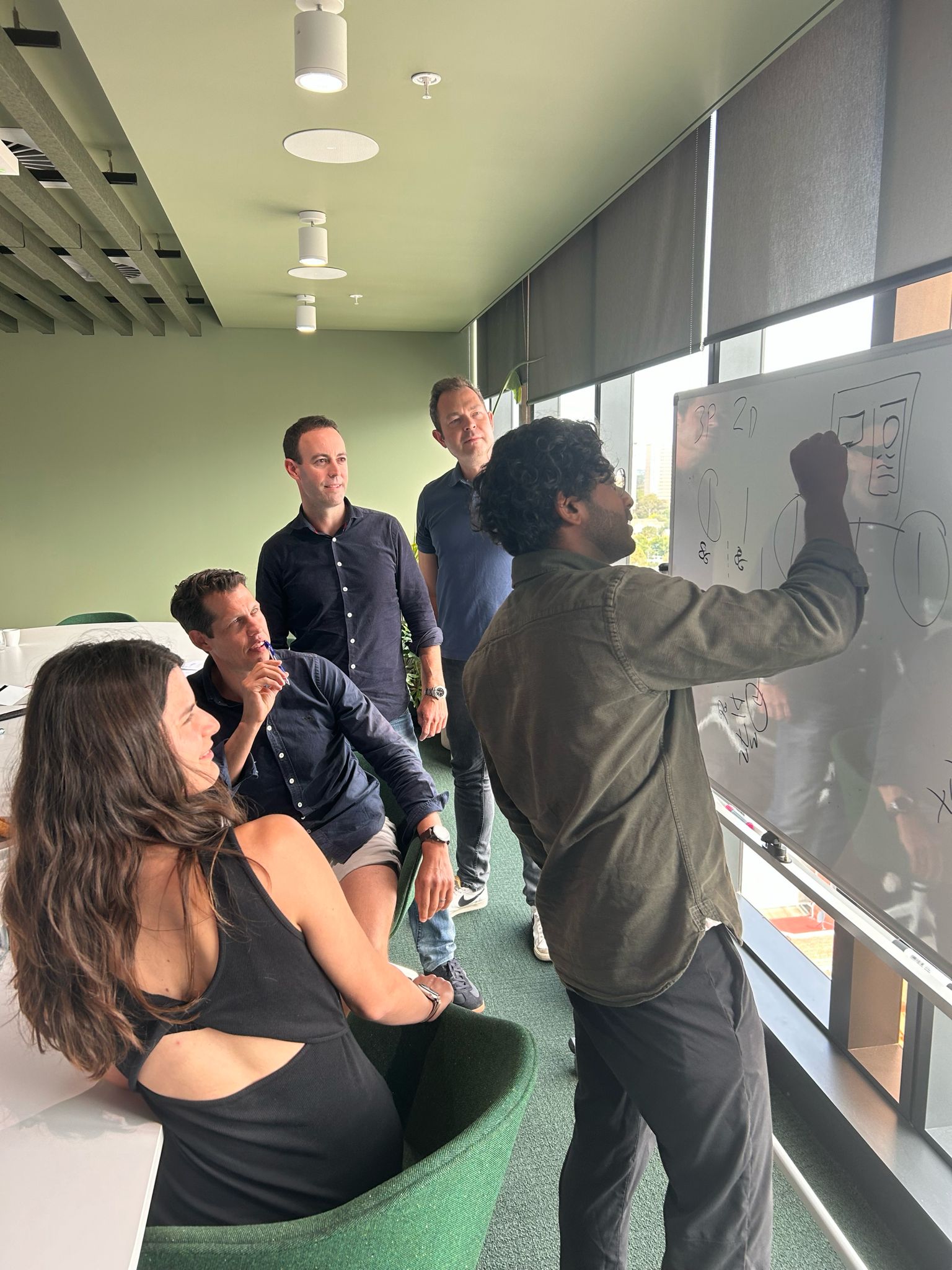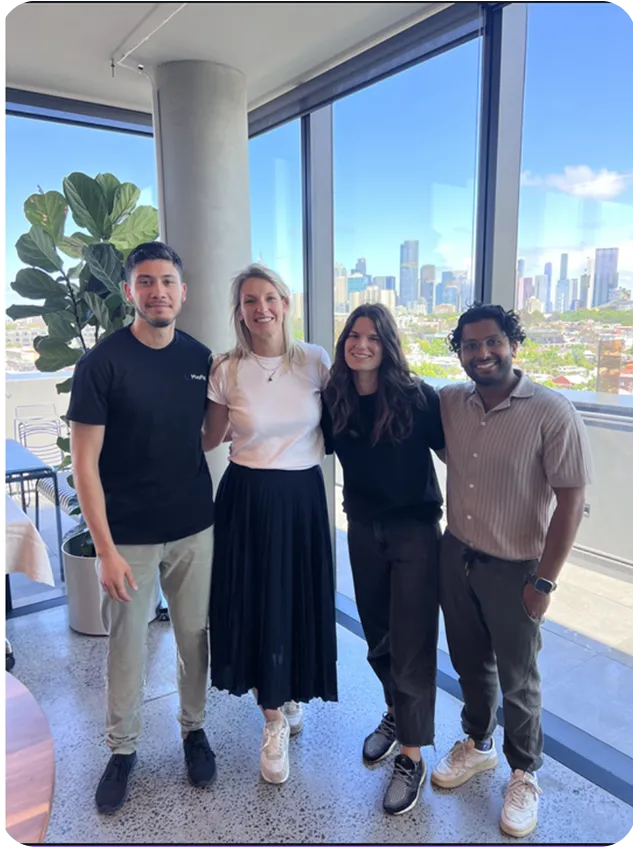Thank you! Your submission has been received!
Oops! Something went wrong while submitting the form.

Mayfly collaborated with the MUCUDU team to build a low-code MVP for their hospitality tech platform, which includes loyalty management, peer-to-peer monetary gifting, and Tab functionality.
Beyond the standard integrations with Stripe, Apple, and Google for login and payments, we incorporated advanced integrations with Point of Sale systems like Doshii and AI-driven recommendations that personalize the dining experience.
The AI agent revolution is upon us, offering unprecedented opportunities to automate tasks, improve efficiency, and create scalable businesses. However, while the potential is immense, building and scaling an AI agent startup comes with unique challenges. Success requires not only technical expertise but also a strong product strategy, market validation, and a clear go-to-market (GTM) approach.
In this article, we’ll explore lessons from successful AI agent ventures to uncover the strategies that drive scalability and long-term success.
.png)
The most successful AI agent startups solve specific, high-impact problems. Before building, founders must identify a pain point that is:
Lesson from Fairgo:
Fairgo identified inefficiencies in HR processes like resume screening and interview scheduling. By focusing on a clear pain point, the team built an AI agent that automates repetitive tasks, freeing recruiters to focus on strategic decisions.
Takeaway: Start with customer discovery to understand your target audience’s biggest challenges.
Building a scalable AI agent startup starts with a Minimum Viable Product (MVP). An MVP allows you to test assumptions, validate demand, and gather feedback without overinvesting.
Lesson from Cor:
Cor’s co-founders built an MVP focused on automating customer success workflows. They validated the idea by running pilots with customer success teams, gathering feedback to refine their product.
Takeaway: Keep your MVP focused on a single problem, iterate based on user feedback, and refine until you achieve product-market fit.
Scalability is key to long-term success. Successful AI agent startups design their systems to handle growth without compromising performance.
Lesson from Relevance AI:
Relevance AI scaled its vertical AI agents by building modular systems that could adapt to different industries, such as hospitality and finance.
Takeaway: Design with scalability in mind from day one to avoid costly redesigns later.
Horizontal AI agents (general-purpose tools) face stiff competition from major players like OpenAI and Google. Vertical AI agents, however, target niche industries or functions, allowing startups to differentiate and capture market share.
Lesson from MUCUDU:
MUCUDU focused on hyper-personalized marketing for hospitality venues, leveraging industry-specific insights to provide tailored solutions.
Takeaway: Narrow your focus to a specific vertical or domain to maximize your competitive edge.

AI agents operate autonomously, which makes trust a critical factor for adoption. Successful ventures build trust by focusing on:
Lesson from Fairgo:
Fairgo’s AI agent generates detailed logs of its hiring recommendations, providing transparency for HR teams.
Takeaway: Prioritize transparency and ethical considerations to build user confidence.
Building a great product is only half the battle; you also need a clear plan to bring it to market.
Lesson from Mayfly Ventures:
Mayfly helped Cor and Fairgo develop targeted GTM strategies, focusing on clear messaging and early customer engagement.
Takeaway: Tailor your GTM strategy to your target audience, emphasizing specific use cases and tangible outcomes.
The most successful AI agents improve over time through feedback and iteration. Continuous improvement ensures your product remains relevant and competitive.
Lesson from Relevance AI’s Bosh:
Bosh uses reinforcement learning to refine its sales outreach capabilities, ensuring it delivers better results with each interaction.
Takeaway: Treat your AI agent as a living product, continuously evolving based on user needs and market trends.
Investors are more likely to fund startups with validated ideas and demonstrated traction. Use your MVP and early customer success stories to build credibility.
Lesson from Fairgo:
Fairgo secured early funding by demonstrating how its AI agent reduced hiring costs and time-to-hire for pilot customers.
Takeaway: Focus on early wins and data-driven storytelling to attract investors.
Building a scalable AI agent startup requires more than technical expertise—it demands a deep understanding of customer needs, a focus on scalability, and a strategic approach to market entry. By learning from successful ventures like Fairgo, Cor, and MUCUDU, founders can navigate the challenges and unlock the immense potential of AI agents.
At Mayfly Ventures, we specialize in helping startups build, validate, and scale AI agent businesses. Whether you’re looking for product strategy, development expertise, or venture-building support, we’re here to help.
.webp)

We’re a team of engineers, designers and venture builders. We partner with industry experts to build and launch AI and software ventures.
We combine your insight and network with our proven playbook and venture building expertise to turn bold ideas into globally scalable products.
We back ventures with capital. With skin in the game our support goes far beyond deliverables, we’re an invested partner in your success.
Here to support from idea conception, to commercialisation and well beyond launch.
You're an industry insider with a deep understanding of the pain points and inefficiencies in your sector which are prime for AI disruption.
You have the network to access early adopters locally with the conviction to scale globally.
You are looking for a partner experienced in launching tech ventures to guide you the process of building, launching and scaling an Al platform to transform your industry.

